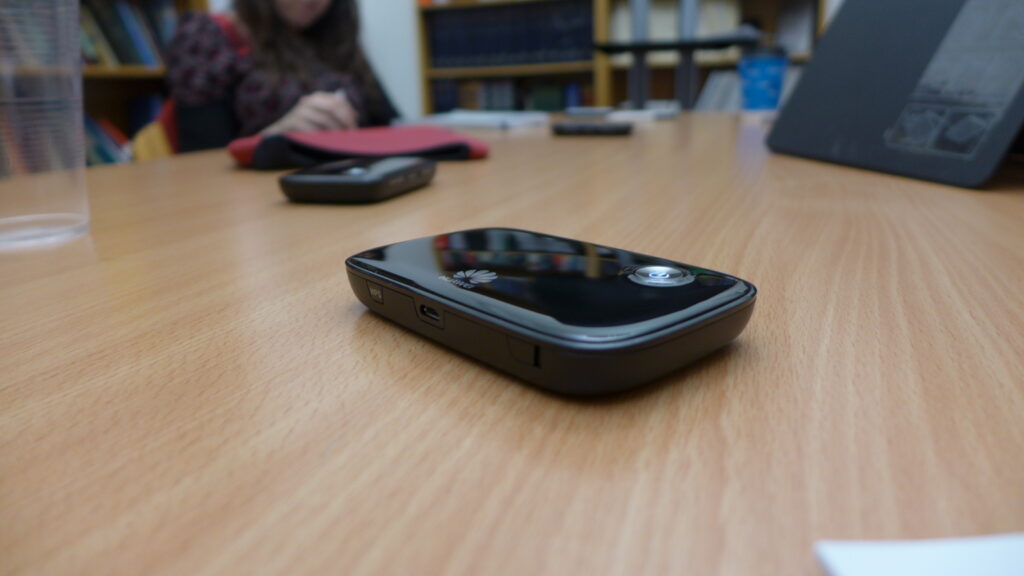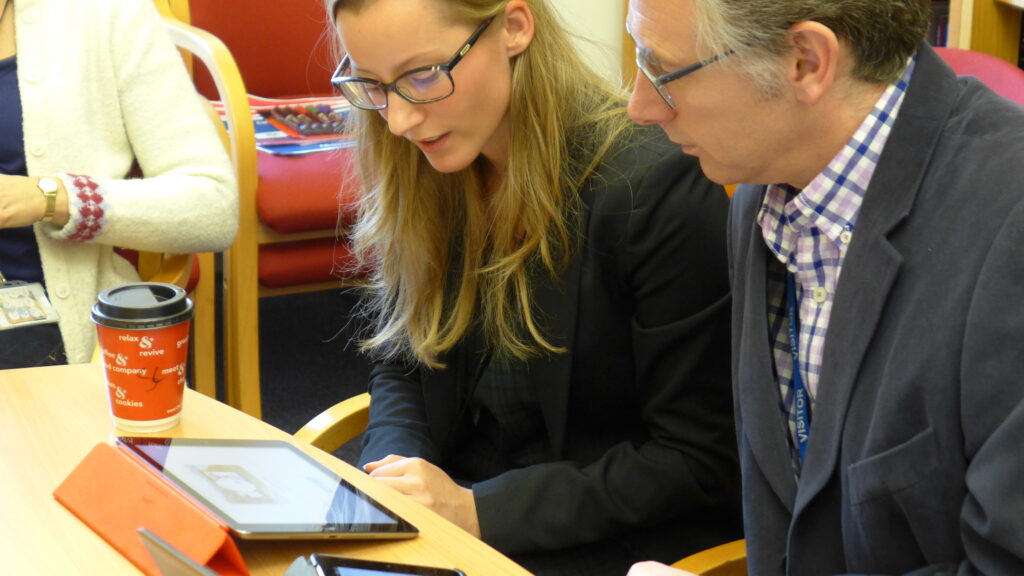We ran some user trials during December and January (see Anna Wojnarowska’s post of 10 January 2014). We were trialing laptops, tablets, email, collaboration and WiFi access, with a group of around 50 users.
The users gave us regular feedback on how the new tools affected their day to day working, which we are feeding into the solutions that we will take forward.
As we are now at the end of those trials, it’s a great time to share what we learned and what assumptions were confirmed by real people that work at the Cabinet Office.
What we’ll describe here falls into two broad themes:
- technology (what technology should we be transitioning to)
- training and support (how we should support the transition, and our users, in the new world)
Technology
The technology that we gave the users included: lightweight laptops and tablets; Google Apps for mail, calendar, document creation and collaboration; Evernote for notetaking and Libre Office for offline document creation. We also included a lightweight secure layer, device management, portable 4G WiFi and printers.

The most interesting discovery was how easily participants were able to start using the real-time document editing functionality in Google Docs. This was particularly apparent with one team who regularly collaborate on a briefing presentation. Normally this would mean emailing versions back and forth, combined with waiting for changes to be made, with documents inevitably getting out of sync. During the trials they were able to work on the same document at the same time, from multiple locations - resulting in higher quality output, achieved faster. While their existing technology forced them to work a certain way, the trial technology enabled them to work how they wanted, and for the better.
The downside to this came when they needed to collaborate with people outside of the trials - those people not using the same technology. This highlighted the need to make sure the applications and file formats work together, but also to think about how our users work with other departments and with people outside of the Cabinet Office.
While there was enthusiasm for Google Docs, and it was well received, many users did not see it as a replacement for the products they are used to. Users keenly felt some differences in functionality - from small features they take for granted (such as automatic capitalisation of some words), to challenges with formatting and document presentation.
The trial showed the benefits of Google Docs, but also that users would find it hard to adjust without support. Interestingly, very few users commented on not being able to use Outlook; and then only that their filing system within Outlook had no obvious parallel within Google Mail.
As well as new applications, we provided new devices. The most obvious difference was the introduction of tablet devices - both Android and iOS.
A few users reported significant benefits from the tablets: note-taking during meetings, using them to present work, carrying all their documents with them, working on the train - to name a few. However, while the devices themselves (particularly the iPads) were popular, a large number of users questioned whether they would actually help them work, either because they didn’t need to move about that much, or because they relied too heavily on the laptop-based tools which provided functionality the tablet couldn’t match. Some users found the tablet didn’t help them much - this confirmed our belief that tablets wouldn’t benefit everyone.
Training and support
We wanted to maximise the value of the training we provided, so we gave users the devices prior to the training sessions and encouraged them to try them out first, before coming to the sessions.
We’ve seen how the success of the new technology depends on how prepared people are to use it, and in this regard training is really important - both initial training, and ongoing skill and capability development.
To provide support, initially we set up an online ticket system, and had a drop-in service where people could come along and get help.
In the event, very few people came along to the drop-in desk. It’s not clear exactly why this was the case - perhaps people are used to seeking support remotely, over the phone or via email. Our subsequent investigations into the support process suggest that people prefer ‘tech bar’ or drop-in services when they want to schedule a non-urgent or training request, and actually prefer to call if they have a technical fault.
Alongside the online support portal, we had provided a feedback form. Over the course of the trial, people stopped submitting tickets through the ‘proper’ channel, and instead raised them through the separate feedback form. This suggests that in future we should maintain a single point of contact for all feedback and support, and make sure we have a good system in place to sort through these - taking the burden away from the user and making it as easy as possible for them.

In response to the poor uptake of the drop-in service, we started doing ‘floorwalks’, where one of us would go and visit the areas where the trial teams were located. Participants had the opportunity to ask the questions they’d thought of but hadn’t emailed in, and they were able to get on-the-spot fixes for the issues they’d encountered. This approach worked really well, and is something we’re looking into for the roll-out and beyond.
Finally, we noticed how our users would always turn to each other for support, first and foremost. This is something we’re going to encourage, and we’ll think of ways we can support this - for example, with designated super users, community support tools, and recognition for people who are consistently helping their colleagues.
The end of the trial
As we had predicted, our users were extremely reluctant to return any of the equipment! Some of the clearest evidence of the difference the technology made came when we asked for the kit back - without exception, every team on the trial asked to keep the equipment beyond the trial end date.
Overall, we’re very happy with what we achieved during the trials. The uptake we’ve seen and the feedback we’ve received has been really encouraging. We’ll take all of this forward to shape how and what we roll out.
15 comments
Comment by Charles posted on
Just a couple of thoughts on new hardware and software:
- Microsoft now have Office online, with all the same benefits of Google Docs, but with much of the functionality of Word, etc. and a familiar interface as well - hopefully circumventing some of the problems cited in terms of both compatibility and usability.
- there are a growing number of full-fat Windows tablets (and more flexible laptops) available, which would enable the benefits of both the tablet format and the 'functionality the tablet couldn't match'. I hope you weren't so confirmed in your belief 'that tablets wouldn't benefit everyone' that you don't explore these much more functional alternatives that could double up as both laptops and tablets, and thus might actually benefit everyone.
Comment by Matt posted on
The rollout starts this summer but it's not an instant switch over. You have identified issues with people not being all on the same software and we are heading in a matter of weeks to the department running at the same time on GDS, Flex R, Flex C, the new higher classification system and the spooks system. It's going to be a transformation no doubt but for the better? How about a new name - System Integrated Life Office Suites, or SILOS for short?
Comment by Dan posted on
I'd be interested to understand what data (i.e. at what security marking) can be stored in Google Docs now? Is there any guidance on this?
Comment by Tom Read posted on
Hi Dan. Currently Google Docs is not accredited to OFFICIAL so should only be used for unclassified and personal information. Google Docs is one potential option we're looking at for the future Cabinet Office IT services and we are working with CESG to understand how to make it compliant with OFFICIAL and OFFICIAL-SENSITIVE classification. Watch this space..
Comment by Jon Wiltshire posted on
Hi Tom - has there been any progress on this? I'm a civil servant and I'm working hard to understand what online collaborative tools I can use for a cross-Government project. A secure Google Docs - with real-time collaboration - would be the ideal.
Comment by Tom Read posted on
Hi Jon. I've emailed you on this. Short answer though is we're making some really good progress with the security teams on applying "sensible security" to collaborative cloud applications.
Comment by B Thomson posted on
There may also be considerable benefit in talk to the likes of LB Hillingdon and Warwickshire who have deployed apps such as Google, and have lived the roll out and support and security day to day....
Comment by Tom Read posted on
Hi B - thanks, and yes we're already talking to a number of local gov teams who have rolled out cloud apps. Very useful to hear experiences first hand. -Tom
Comment by M Thomas posted on
Office 365 is now available with IL2 and IL3 on Gcloud. This will provide the google docs functionality with the added benefit of handling more secure elements. Was this considered also?
Comment by Tom Read posted on
Hi M. Over the past few months we have been carrying out usability testing on a range of devices and applications, and yes, one of the options we are considering for our standard applications is Office 365. Along with Google Docs, it's a great product set and we're going to be making our final decision based on user feedback, security implications, cost etc. More info shortly.
Comment by Luke posted on
Google Drive, Docs, Sheets and Slides have superior collaboration features over 365. 365's collab features are not as rich across devices.
Comment by M posted on
Any update on the testing of Office365 v Google Docs?
Comment by Catriona McGrath posted on
Thanks for your comment, Marcus.
We'll be posting on this soon. Watch this space.
Comment by Quinton posted on
Hi Cabinet Office Team,
This was a great article to read and you are certainly setting trends for government ICT globally. Is there any further information available on this project? Especially on how the user's perceived the other software in the pilot? (e.g. Libre office) and was there anything else that they would have liked to have seen made available?
Thanks in advance,
Quinton
Comment by Catriona McGrath posted on
Dear Quinton,
Thanks for your comment. We'll be updating on this soon.